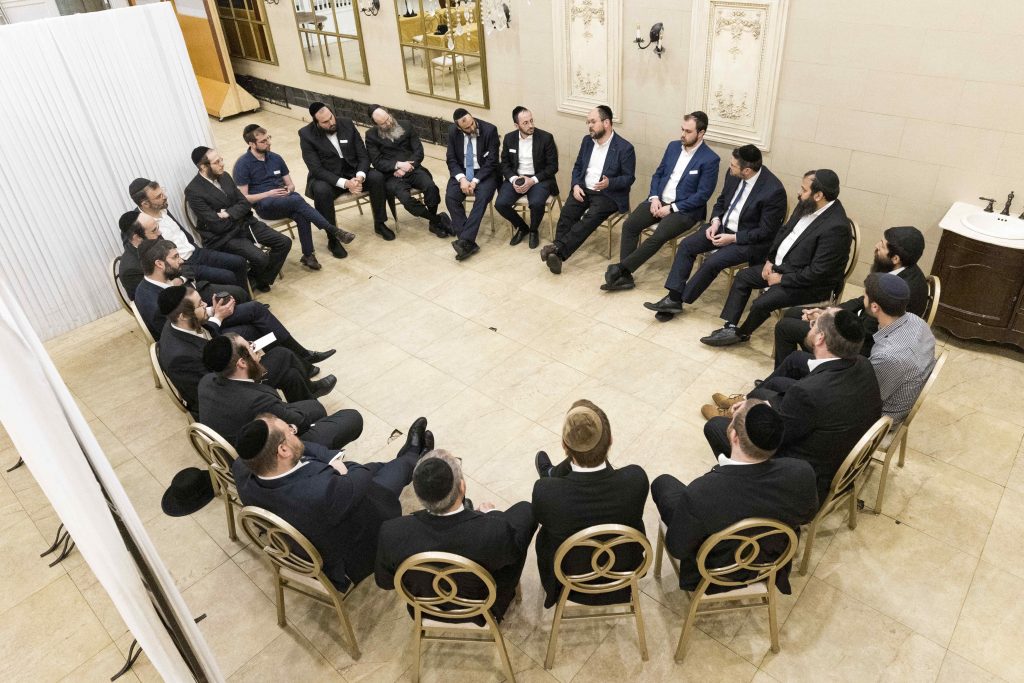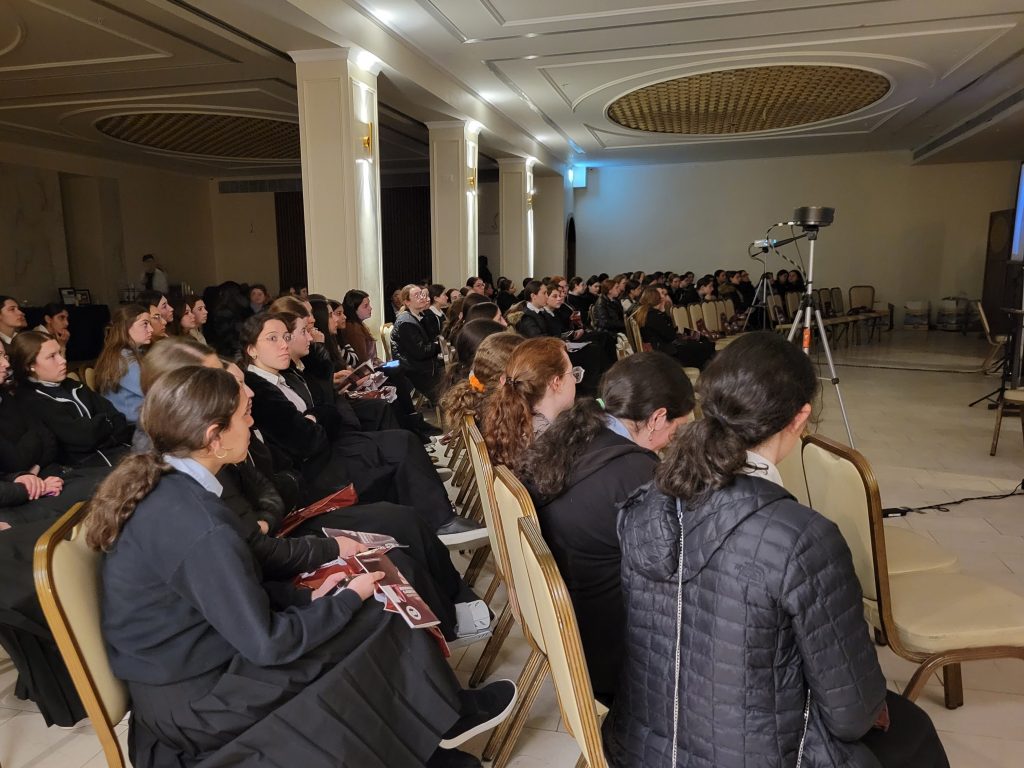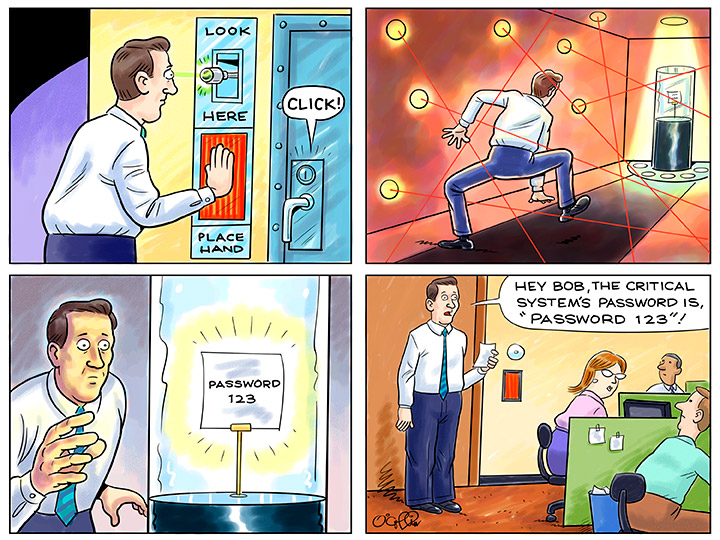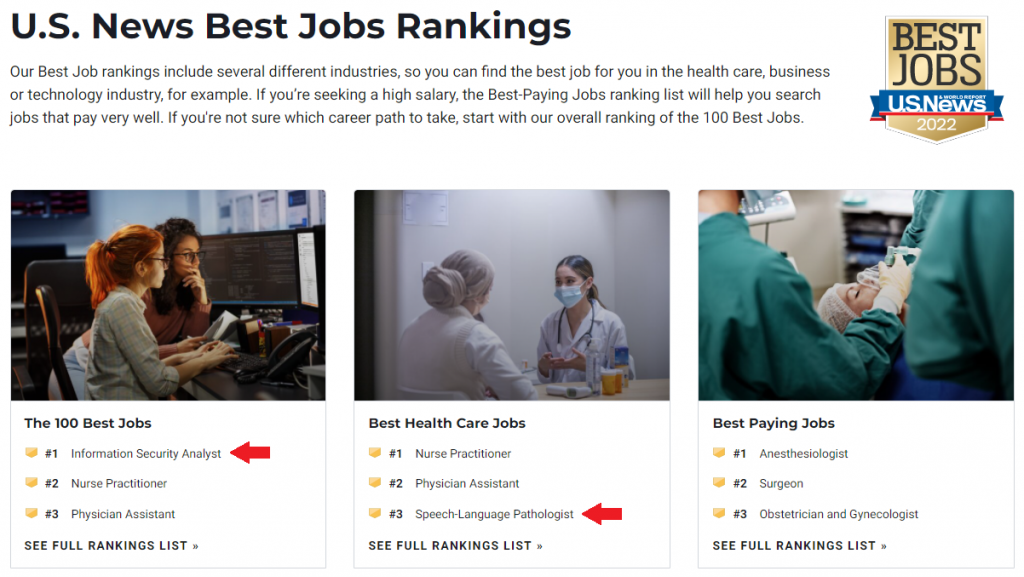The Occupational Therapy Doctorate offered through Katz School of Science and Health at Yeshiva University is the first choice for anyone considering a career in the field of occupational therapy. Whereas most OT programs only offer a master’s degree, this 115-credit program is the first fully accredited entry-level OT doctoral program in the New York area. The hands-on curriculum trains students to develop and deliver holistic services through the integration of theory, research, and knowledge-based practice and clinical skills. This program is unique in that it allows undergraduates to earn a doctoral degree with only a bachelor’s degree and required prerequisites.
The Sara Schenirer BA in Psychology with OT prerequisites includes all the prerequisite requirements of this post-graduate degree and saves students considerable time and expense. Information on that program can be found here.
Partner college(s):

Program Location(s):
- Hybrid- Bronx/Online
FAQ
The Occupational Therapy Doctorate offered through Katz School of Science and Health at Yeshiva University is the first choice for anyone considering a career in the field of occupational therapy. Whereas most OT programs only offer a master’s degree, this 115-credit program is the first fully accredited entry-level OT doctoral program in the New York area. The hands-on curriculum trains students to develop and deliver holistic services through the integration of theory, research, and knowledge-based practice and clinical skills. This program is unique in that it allows undergraduates to earn a doctoral degree with only a bachelor’s degree and required prerequisites.
The Sara Schenirer BA in Psychology with OT prerequisites includes all the prerequisite requirements of this post-graduate degree and saves students considerable time and expense. Information on that program can be found here.
No. This is an entry-level doctorate program, and you may begin after completing your bachelor’s degree and all required prerequisite courses.
We are proud to have partnered with Katz School of Science and Health, a prestigious college featuring the first fully accredited entry-level OT doctoral program in the New York area. Yeshiva University is a US News and World Report Top 100 university. Forbes ranks Yeshiva University as a Top 100 university in the United States, Top 50 in the Northeast, and 57th among research universities nationwide.
Yes. Katz School’s Occupational Therapy Doctorate program has been granted full accreditation by the Accreditation Council for Occupational Therapy (ACOTE) of the American Occupational Therapy Association (AOTA).
All states require occupational therapists to be licensed. The program’s graduates are eligible to sit for the national certification examination to qualify as an occupational therapist by the National Board for Certification in Occupational Therapy (NBCOT). An individual will be considered an occupational therapist, registered (OTR), following successful completion of the exam. Though most states require licensure in order to practice, the state licenses are usually contingent on successful passage of the NBCOT certification examination.
Occupational therapy is the only profession that helps people across the lifespan do the things they want and need to do through the therapeutic use of daily activities. Occupational therapy practitioners enable people of all ages to live life to its fullest by helping them promote health and prevent—or live better with—injury, illness, or disability.
One of the greatest advantages of a career in occupational therapy is the wide variety of opportunities available to occupational therapy graduates. Common occupational therapy interventions include helping children with disabilities to participate in school, helping people recovering from injury to regain skills, and providing support for older adults experiencing physical and cognitive changes. About half of occupational therapists work in offices of occupational therapy or in hospitals. Others work in schools, nursing homes, and home health services. There are also many specialized areas of practice in mental health settings, NICUs, wellness centers etc. To learn more about the unique impact that occupational therapists make in their patient’s lives, please visit the AOTA website.
The median starting wage for occupational therapists was $85,570 in May 2021. Private practitioners and those in high-demand locations can earn considerably more.
Occupational therapy is ranked in the top 20 in U.S. News & World Report’s Top Health Care Jobs, and the demand for occupational therapists continues to increase. According to the US Bureau of Labor Statistics, employment of occupational therapists is projected to grow 14 percent from 2021 to 2031, much faster than the average for all occupations.
This degree can be completed in just 8 semesters (28 months).
- Bachelor’s degree from an accredited institution
- Minimum undergraduate 3.3 GPA
- Successful completion of prerequisite courses
- Two courses in the humanities or social sciences (Anthropology; Philosophy; Religion; Ethics; Cultural studies; Group dynamics) (3 credits each)
- Statistics (3 credits)
- Human Anatomy w/ lab (3 credits)
- Physiology w/ lab (3 credits)
- Human Development or Lifespan (3 credits)
- Abnormal or Behavioral Psychology (3 credits)
Yes. The Sara Schenirer BA in Psychology with OT prerequisites includes all the prerequisite requirements of this post-graduate degree and saves students considerable time and expense. Information on that program can be found here.
Courses are offered in a hybrid format of online and on-campus:
Semester 1 – 3 weekdays each week on campus* and online
Semester 2 – 3 weekdays each week on campus* and online
Semester 3 – 3 weekdays each week on campus* and online
Semester 4 – 3 weekdays each week on campus* and online
Semester 5 – 12 week full-time fieldwork in clinical sites. No campus classes
Semester 6 – 12 week full-time fieldwork in clinical sites. No campus classes
Semester 7 – Doctoral dissertation – no fieldwork or campus classes
Semester 8 – Doctoral dissertation – no fieldwork or campus classes except for Capstone Dissertation
* The campus is located in the Ferkauf School of Psychology building at 1165 Morris Park Ave, The Bronx, NY 10461, and offers state-of-the-art labs.
Fieldwork is an integral component of a successful occupational therapy program. In each of the second, third, and fourth semesters, students will complete one week of full-time fieldwork (totaling 3 weeks). In each of the fifth and sixth semesters, students will complete 12 weeks of full-time fieldwork (totaling 24 weeks). Students will be placed in their clinical placements by the fieldwork department.
Full-time participation in fieldwork and doctoral capstone experiences is a required component of the occupational therapy doctorate program. Many sites have certain health requirements for students including, but not limited to, proof of COVID-19 vaccination and proof of immunization or immunity against influenza, measles, mumps, rubella, varicella, tetanus, diphtheria, pertussis and hepatitis B. The program cannot guarantee a placement for exempted students.
The Katz Occupational Therapy Doctorate program features a state-of-the-art facility that complements the program’s intensive and personalized curriculum. Even more important, the program is taught by faculty who are clinical experts in their fields and bring the most current, evidence-based education to students, and managed by administrative staff committed to each individual student’s professional and personal success. The Sara Schenirer/Katz partnership guarantees that students will be trained in a culturally sensitive manner that ensures that there will not be conflict with Torah and hashkafic sensitivities and that all scheduling is done with an eye toward the Jewish calendar.
The Katz School prides itself on offering superior education and student support in a culturally sensitive environment. They are very understanding of the unique requirements and religious sensitivities of students who attend through Sara Schenirer and have worked diligently to provide an environment suitable for a Bas Yisroel while meeting all academic standards.
For students and parents alike, the world of college and degrees can be confusing, costly, and difficult to navigate. We pride ourselves on our high-quality educational partners who offer an accredited degree, uncompromised environment, and first-rate faculty at affordable prices. We complement that by providing exceptional warmth and support to every single student at Sara Schenirer, and we work diligently to offer personal guidance to each student to ensure their success and timely graduation. Most of all, we operate under guidelines set for us by prominent rabbonim with whom we regularly consult to ensure conformance with Torah standards.
The cost for this 115-credit doctorate is just $85,000 ($10,625 per semester).
At the graduate level, financial aid is available in the form of federal student loans. Graduate students may borrow up to $20,500 per year through the Federal Unsubsidized Loan program. Students may borrow up to the remaining cost of education in the Federal Graduate PLUS Loan program. Alternatively, payment can be made each semester via electronic check, credit card, wire transfer, or a 5-month payment plan.
- Helen B and Lewis E Goldstein Scholarship Fund – The Helen B and Lewis E Goldstein Scholarship Fund is open to Jewish full-time students enrolled in an accredited undergraduate or graduate school in the United States.
- Rose Biller Scholarship Fund – The Rose Biller Scholarship Fund is open to Jewish residents of NYC’s five boroughs, Westchester, and Long Island with financial need. It provides scholarships to Jewish men and women with significant economic need attending undergraduate, graduate, and professional schools.
- Samuel Lemberg Scholarship Loan Fund – The Samuel Lemberg Scholarship Loan Fund provides interest-free loans to aid Jewish undergraduate and graduate college students who exhibit exceptional academic achievement and face financial difficulties pursuing a higher education. These loans must be repaid within ten years of graduation or termination of studies.
To request an application, please submit this form.
When completing the application, you will also be requested to supply:
- Undergraduate Transcript(s)
- Essay
- Resume
- Two Letters of Recommendation (one from a licensed occupational therapist, and one professional)
- Proof of completion of 40 observation hours signed by a licensed and occupational therapist
- Personal Photograph
- Non-refundable Application Fee
Even if you do not have these available at the time of application, we recommend submitting your application immediately and submitting the requested documents as they become available.
Once your application is submitted with all the required documents, an interview will be scheduled to continue the admissions process.
If you have additional questions or concerns, please feel free to call our office at 718-633-8557 ext. 37 or email [email protected], and as always, we will be happy to assist you further.
Course Listing
Semester 1
Occupational Therapy Profession and Practice (3 credits)
Introduction to Doctoral Fieldwork I (1 credit)
Assessment and Screening I (3 credits)
Introduction to Scholarship and Research (2 credits)
Clinical Skills and Procedures (2 credits)
Anatomy and Human Movement (5 credits)
Semester 2
Occupational Performance in the Older Adult Population (5 credits)
Skills Lab: Older Adult (2 credits)
Fieldwork I: Older Adult (1 credits)
Assessment and Screening II (2 credits)
Brain, Behavior and Occupation (3 credits)
Scholarship and Evidence-based Practice I (3 credits)
Occupations in Practice Through the Lifespan (2 credits)
Introduction to Doctoral Studies (1 credit)
Semester 3
Occupational Performance in the Adult Population (5 credits)
Skills Lab: Adult (2 credits)
Fieldwork I: Adults (1 credit)
Scholarship and Evidence-based Practice II (3 credits)
Preparatory Methods I (3 credits)
Assistive Technology (4 credits)
Semester 4
Occupational Performance in the Child and Adolescent Population (5 credits)
Skills Lab: Children and Adolescents (2 credits)
Fieldwork I: Children and Adolescents (1 credit)
Doctoral Fieldwork II (1 credit)
Preparatory Methods II (4 credits)
Occupational Wellness (4 credits)
Leadership and Advancement in Practice (4 credits)
Semester 5
Preparation for Doctoral Professional Practice (1 credit)
Fieldwork II-A (12 credits)
Semester 6
Capstone Project I (1 credit)
Fieldwork II-B (12 credits)
Semester 7
Capstone Project II (2 credits)
Capstone Experience I (5 credits)
Semester 8
Capstone Experience II (6 credits)
Capstone Experience III (2 credits)
Career Paths
Where Can You Work?

Schools

Hospitals
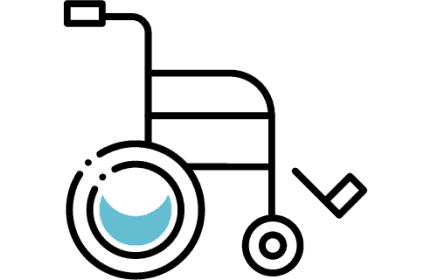
Rehab Centers
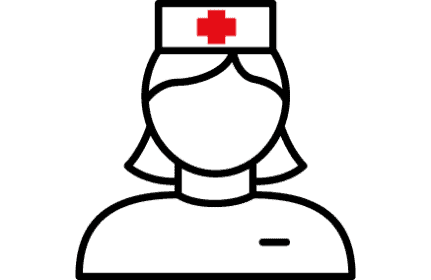
Clinics

Private Practice
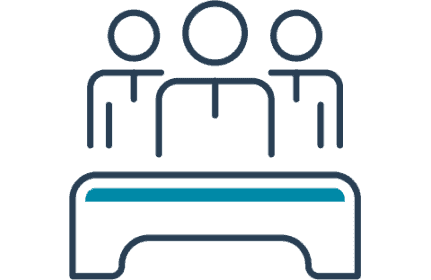
Community Organizations


